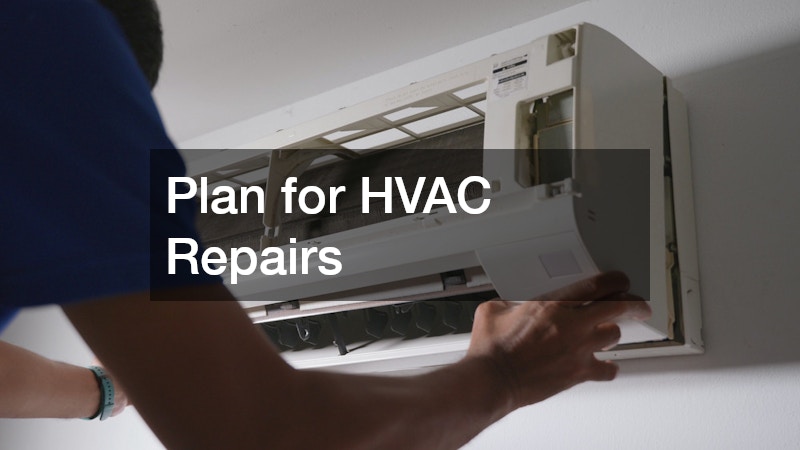Embarking on a full house renovation is both thrilling and challenging. Transforming an entire home into a space that matches your lifestyle and aesthetic requires careful planning, strategic decision-making, and a realistic understanding of costs. Many homeowners underestimate the scope of such projects, often focusing only on visible upgrades like paint, flooring, or cabinetry while overlooking essential systems and infrastructure. Yet, a comprehensive approach ensures that the home not only looks beautiful but also functions efficiently and safely.
Budgeting for a home renovation is about more than assigning numbers to line items—it’s about anticipating the full range of expenses that come with major structural changes. Considering both immediate needs and potential future repairs helps avoid financial surprises. A thoughtful budget allows homeowners to prioritize essential updates while still incorporating the design elements that bring the space to life. By planning carefully, you protect your investment and gain the confidence to tackle each stage of the renovation without unnecessary stress.
Planning a full house renovation also involves considering the sequence of tasks. Some updates must be completed before others to ensure efficiency and prevent rework, such as completing structural modifications before installing finishes or appliances. Mapping out a timeline alongside a budget allows you to coordinate contractors, deliveries, and inspections without unnecessary delays. This strategic approach helps maximize both your time and resources, keeping the renovation process organized and stress-free.
Evaluate Wastewater Infrastructure

One often overlooked aspect of a home renovation is the condition of the home’s wastewater system. Modern living places additional demands on older systems, particularly if new bathrooms or kitchens are added. Without proper planning, these upgrades can strain existing infrastructure, leading to leaks, backups, or other costly issues. Including this consideration early in your budget ensures that your renovation proceeds smoothly and that you avoid expensive surprises down the line.
For homeowners with septic systems, planning ahead is crucial. A professional inspection can reveal whether your current system can handle added capacity or if upgrades are needed. Factors such as tank size, drainage field condition, and soil quality may all influence the cost and complexity of necessary improvements. Budgeting for these services ensures that your full house renovation accounts for functional necessities and maintains long-term reliability, protecting both your home and your investment.
Beyond the immediate functionality of a wastewater system, homeowners should consider the long-term environmental impact. Efficient wastewater management can reduce water usage, prevent contamination, and comply with local regulations that support sustainable living. Choosing solutions that are both durable and environmentally friendly not only benefits your household but also enhances the property’s market value over time.
Hire a Licensed Plumber
Plumbing is central to the success of a home renovation, influencing both the functionality and safety of your home. Properly installed systems prevent leaks, water damage, and inefficiencies that can quickly add up if left unchecked. Budgeting for professional plumbing services ensures that all new installations—from kitchens to laundry rooms—are completed correctly and in compliance with local codes.
A licensed plumber brings expertise that is invaluable during a renovation. They can recommend the best materials for long-term durability, help with rerouting existing pipes, and ensure proper connections to new fixtures. Hiring a professional also reduces the risk of hidden problems, such as inadequate water pressure or improper drainage, which might only become apparent after the renovation is complete. Allocating funds for licensed plumbing is a proactive step that supports both immediate needs and the ongoing maintenance of your renovated home.
In addition to installations, a home renovation often requires inspections to ensure compliance with safety codes. Planning for these check-ins in advance can prevent costly delays and fines. Proper documentation and approval of all plumbing work also contribute to the overall resale value of the home, demonstrating that the renovation was conducted responsibly and professionally.
Strengthen Structural Foundations

The foundation of a home underpins every other element, making it a critical focus during a home renovation. Any compromise in structural integrity can affect the durability, safety, and value of your property. Even the most visually appealing upgrades are meaningless if the foundation cannot support the changes. Including this in your budget ensures that your renovation is built on a secure base.
When it comes to foundation improvements, a concrete contractor can assess and repair issues such as cracks, settling, or uneven surfaces. For renovations that expand the living space, new concrete work may be necessary to support additional rooms or extensions. By incorporating this cost early, homeowners protect the entire project from structural problems and ensure that their full house renovation meets both safety and longevity standards.
Foundation considerations extend beyond immediate repairs. Homeowners should think about future expansions or modifications, as the foundation needs to support not just the current renovation but potential upgrades down the line. Planning with long-term flexibility in mind protects the investment and allows the home to adapt to changing needs over time.
Install Cooling Systems
Comfort is a key consideration during a home renovation, particularly in areas prone to warm weather. Upgrading or installing new cooling systems can significantly enhance livability and improve energy efficiency. Ignoring this element can result in a home that looks stunning but feels uncomfortable during hotter months. Proper planning ensures that your renovation addresses climate control effectively.
An air conditioning contractor can guide homeowners in selecting systems suited to the home’s size and layout. From central air units to ductless options, professional guidance ensures the system is installed efficiently and will provide consistent cooling throughout the house. By budgeting for this expertise, you safeguard both comfort and energy efficiency, creating a more functional living environment as part of your full house renovation.
Choosing the right cooling system also involves thinking about energy efficiency and operational costs. A well-planned system can reduce electricity usage, lower utility bills, and minimize environmental impact. Integrating features like programmable thermostats and zoning options can further enhance comfort while maximizing cost-effectiveness over the years.
Plan for HVAC Repairs

Even after installing new systems, HVAC equipment requires ongoing attention. A home renovation is an ideal time to evaluate existing heating and cooling infrastructure, anticipating repairs that may arise in the future. Preparing for these potential costs helps prevent unexpected financial strain and keeps your systems running optimally.
Including HVAC repairs in your budget accounts for routine maintenance, part replacements, and occasional service visits. Regular upkeep ensures that your heating and cooling systems operate efficiently, reducing utility costs and extending equipment lifespan. Planning ahead in this way ensures your home renovation incorporates both comfort and long-term reliability, protecting your investment over time.
Regular maintenance planning is an essential part of long-term budgeting for any full house renovation. Even the best systems require seasonal tune-ups, filter replacements, and occasional adjustments to remain efficient. Scheduling routine inspections ensures consistent performance, prevents small issues from escalating, and prolongs the life of the equipment.
Upgrade Hot Water Systems
A reliable hot water system is essential for a modernized home. During a home renovation, homeowners should evaluate the current capacity and functionality of their water heater to meet the demands of updated bathrooms, kitchens, and laundry areas. Ensuring adequate hot water avoids inconvenient disruptions and contributes to overall home comfort.
Budgeting for water heater repairs accounts for potential updates or replacements that may arise as the home undergoes significant renovations. Whether addressing leaks, corrosion, or insufficient heating, these costs should be included in your financial plan. By doing so, you ensure your full house renovation delivers a home that functions seamlessly for daily life and avoids costly surprises post-renovation.
Hot water systems also benefit from energy-efficient choices. Tankless or hybrid models can reduce energy consumption and provide nearly unlimited hot water, which is particularly useful for larger households. Evaluating efficiency options during the renovation process can save money in the long term while improving daily comfort and convenience.
Manage Debris and Waste

Home renovations generate significant debris and construction waste, which must be properly managed to maintain a safe, organized site. Neglecting this component can result in project delays, increased hazards, and added costs if disposal is handled reactively rather than proactively. Including these expenses in your budget ensures the renovation process remains efficient.
A dumpster rental provides a centralized solution for debris management. From old flooring to demolition materials, having a dedicated disposal option keeps the worksite organized and prevents unnecessary delays. Planning for this service as part of your full house renovation budget allows for smoother operations and reinforces the importance of efficiency and safety throughout the project.
Proper site management also involves safety planning. Keeping construction areas free of debris reduces the risk of accidents for both workers and residents. Additionally, organized disposal practices improve workflow, reduce cleanup time, and contribute to a more professional renovation environment.
Replace Roofing Materials
The roof protects your home and everything within it, making it a critical consideration during a home renovation. Neglecting to address roof issues can compromise structural integrity and lead to costly repairs from leaks or water damage. Including roofing in your budget ensures both protection and aesthetic appeal.
Updating a shingle roof can prevent long-term issues and enhance the home’s appearance. Quality shingles provide durability, improved insulation, and weather resistance. By budgeting for this upgrade, you reinforce your full house renovation with a strong, reliable, and visually appealing top layer, safeguarding your investment and maintaining the property’s value.
Roofing decisions can also influence energy efficiency and insulation. Modern materials often provide better thermal regulation, which can reduce heating and cooling costs. Investing in high-quality materials during a renovation ensures long-term durability and contributes to the overall comfort and sustainability of the home.
Enhance Property Boundaries
Renovating your home provides an opportunity to improve exterior spaces, including fencing and property lines. Home renovations should consider these features, as they contribute to privacy, security, and overall curb appeal. Including boundary enhancements in your budget ensures that the exterior complements the interior upgrades.
Professional fence services can install new barriers, repair existing structures, or suggest designs that improve both function and aesthetics. Properly planned fencing enhances outdoor living areas and protects your property. Budgeting for these services within your full house renovation ensures a cohesive approach that addresses safety, visual appeal, and property value.
Boundary enhancements can also be designed to complement landscaping and outdoor living areas. Thoughtful placement and material choices can create seamless integration with patios, gardens, and walkways, enhancing both visual appeal and functionality. These improvements increase enjoyment of the outdoor space and contribute to the overall aesthetic harmony of the property.
Secure Entryways
Safety is as critical as design in a home renovation. Upgrading entry points enhances both the security and functionality of your home. A well-planned entryway protects your property while providing a polished, welcoming appearance.
Installing a security gate adds an additional layer of protection and can integrate with modern security systems for convenience and peace of mind. Whether automated or manually operated, gates improve safety and contribute to the overall value of the property. Allocating funds for entryway enhancements ensures your full house renovation addresses safety without compromising style.
Entryway improvements can also support accessibility and convenience. Adding features like automated openers, proper lighting, and weather protection can enhance usability for all family members and visitors. Planning for these enhancements during the renovation process ensures a cohesive design that balances aesthetics, functionality, and safety.
A full home renovation represents one of the most significant investments a homeowner can make. Success depends on comprehensive planning that addresses both visible upgrades and essential infrastructure. From plumbing and wastewater systems to roofing, HVAC, and exterior features, each component requires thoughtful budgeting. Anticipating immediate costs and future repairs ensures the home functions efficiently while maintaining safety, comfort, and long-term value.
Careful financial planning allows homeowners to focus on design and lifestyle improvements without the stress of unexpected expenses. Including maintenance considerations, professional services, and structural updates provides peace of mind and protects the overall investment. By following a detailed and realistic budget, your full house renovation becomes not only a transformation of your living space but also a smart, long-term investment that enhances both comfort and property value.
